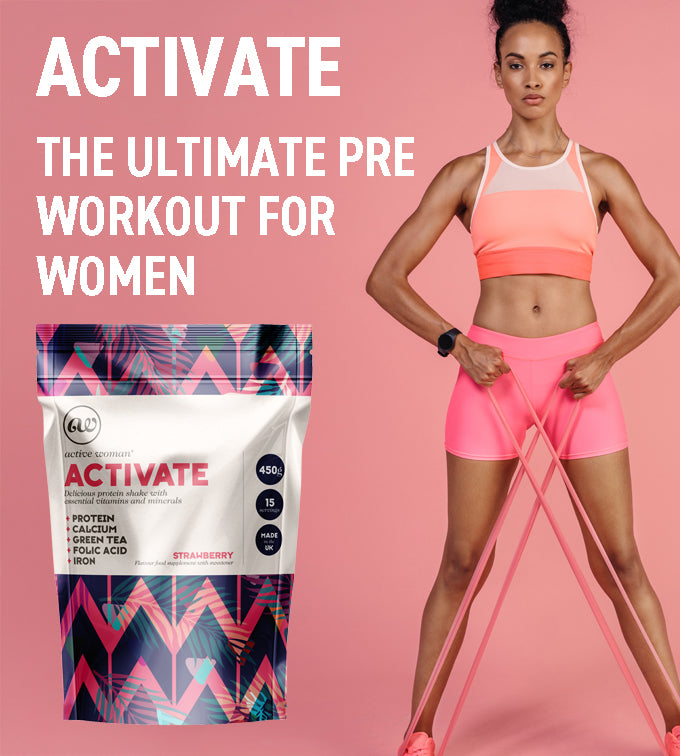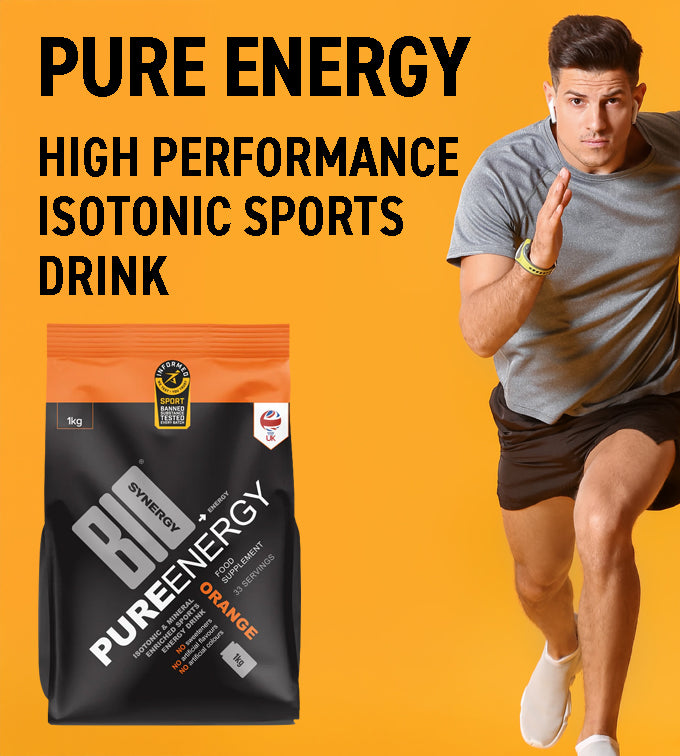Kevin Betts completed 52 marathons in a year in under 4 hours each time, including New York, Las Vegas, Nottingham, Brighton and 27 of them on treadmills. He even ran one on his wedding day. Mr Betts was inspired by the memory of his father Richard. Who took his own life in 2003 aged 46. He said after completing the last event in Portsmouth: "Every week got tougher but I'll but it will have been worth it if it raises the issue of mental health." Kevin has collected £10,000 for mental health charity Rethink and Passingiton, which builds schools in Africa.
You ran 52 marathons in the space of a year! Why did you set yourself this challenge?
I’d run a couple of marathons before and felt like I wasn’t ‘done’ with the distance. Running had become a crutch for me after my dad passed away and I realised how important it was for both my physical and mental wellbeing. I thought doing something stupid like this would get a bit of attention and it could be an opportunity to get people talking about mental health.
My idea was to raise some money for mental health charities but my biggest goal was to blog about it and to encourage people to be more open about mental health. I lost my dad to suicide after years and years of depression and the reaction to his death was so mixed. I really felt like I had the opportunity to lead by example and so I blogged as I went along and drummed up a bit of a following.
How did you train for this feat? How important was nutrition during this training?
If I’m absolutely honest, I didn’t! My first was on New Year’s Day 2011 and at the end of that run, I really wish I had! As the year went on, I knew I could physically complete the runs but mentally they were really taking their toll! It took me a few days to recover from each marathon so my general training load actually went down and I put on weight throughout the year! Each marathon ended up becoming the training for the next one. The treadmill marathons were broken down to different types of session to keep things interesting.
Nutrition was crucial to support both the marathons and the recovery. I used bananas and some energy gels (when I really felt like I was crashing) during the runs. I’m a big fan of using caffeine during runs, too – it really helps me to concentrate. I ate a normal diet throughout, although the night before was plain food so not to upset my tummy before a marathon. And I’d have a protein shake afterwards to support the muscular recovery.
What toll did it take on your body? How did you recover during the challenge and once it was over?
The Physical toll was pretty tough. It was attritional and I had numerous ‘incidents’ throughout the year but luckily none needed me to stop. I ended up in an ambulance after a particularly tough one and ran the last 7 marathons with a hairline fracture in my leg. In all, I actually put on weight throughout the challenge because each week I was doing less activity in total than I otherwise would have – recovery meant not doing much in between.
My recovery during the challenge was to stay mobile after the runs (I’m a big fan of active recovery) and to eat well. I was pretty poor at stretching and doing mobility exercises back then – I just kept walking. Now I’m a PT I realise how lucky I was to get through it without serious injury. I never considered ice baths, proper stretching and massage.
When the challenge was over, I just took time off. I stopped running completely and took some time to myself to do whatever I wanted. I started playing around in the gym more and lifted a lot of weights. I also started football again. It wasn’t long before the bug hit me and a bunch of people who followed the 52 marathon challenge got in touch asking if I’d consider something as a group. In summer 2012, after the Olympics, we ran from Paris to London – 164 miles from the Arc du Triomphe to Marble Arch.
How do you mentally prepare for a marathon just before you set off? Any top tips on conquering the distance?
This depends on the goal for the marathon, to be honest. It’s very different, for me, to mentally prepare for an attempt compared to mentally preparing for a standard marathon distance run. As blasé as it sounds, I can just go out and knock out 26.2 miles no problem. The mental challenge comes in aiming for something beyond my limits. Concentration, focus and some grit are so key before a big run.
The mentality is actually my specialism as a PT – pushing my clients beyond their perceived limits by refocusing their mind and convincing them that they can push their body harder than they thought possible – it’s about not giving in. I could talk all day about conquering the distance but here’s my top two tips:
1) Rehearse it. Take yourself off in the week before the marathon, look at the map, the mile markers and the landmarks along the way. Then imagine how you might feel at certain points along the way. Half way, 20 miles, each mile afterwards. What’s best case scenario? And worst case? What if you do feel terrible? What might you do to pull yourself out of the dark and focus on getting to the finish? If you know what might happen and it does, you’re in a much better place to face them head on and manage the situation. Arm yourself with emotional and personal triggers – we all have a reason for running so use memories, people and occasions to get there. You can use them like energy gels – when it’s tough and you’re low, you have your mental gel to perk you up a bit.
2) Break it down. I use metric and a marathon is a long way – 42.2km. Too far to think about on its own, so I reassess every 5km. I then have something to look towards as I move around. I count up to half way then I change the way my brain works and start counting down afterwards. 13 miles to go, 12, 11, 10… It sounds better than counting up from 13 to 14, 15, 16. You’re ticking off the distance as you go along.
What is the Marathon In A Day challenge? What are you hoping the initiative will achieve? How can people get involved?
Marathon In A Day is the brainchild of me and my PT client Clare, who also supports Mind. The idea came about when we were talking about how the marathon distance is daunting for people and how we wanted to change the way people think about it. We played around with loads of ideas and decided that we wanted to put on an event with two goals. The first was that it was inclusive, fun and accessible – not all about racing and bravado. The second was that it should be unique, interesting and quirky.
What we came up with is an event that people can do on their own or in a team. Marathon In A Day gives you and your team a 24 hour period to run the marathon distance. Only the time spent running counts towards your overall time – so you can take as many breaks as you like. An individual could run 26, one-mile reps, for instance (and then another .2 miles, obviously), with half an hour’s rest between them. Or they could be traditional and just go and run a marathon – it’s completely flexible. A team of 8 could all do parkrun together (and then another 275 meters each), if they wanted. Or they could all do that distance at different parkruns. Or one person could do a half marathon and the other 7 all do about 3km each. You get the idea – it’s totally and utterly flexible!
Our goal is to get more people running, talking, laughing and taking part. We want to support Mind because of the incredible work they do, and I truly believe there is such a strong relationship between mental and physical health. I lost my dad in 2003 after he took his own life. Running became my outlet and a big coping mechanism for me. At first, it was an escape and now it’s different – often, it’s my opportunity to spend time on my own and think.
People can get involved by entering, of course. Or just by supporting us, telling their friends and family about us and encouraging others.
You’re a dad, how do you fit training in around family life?
My boy! He’s my Achilles heel. He’s three and a half now and he’s changed how I think about running. He’s made me run less and I have different priorities, but because he’s around, I’ve also been smarter about my training. If I’m training hard for a particular event, I structure my training so much more now so that I get a bigger bang for my buck. I will work running into my day – include a run as a part of my commute, for instance. I’m much more efficient.
But the biggest change is also the best – we run together! He’s got a pretty durable running buggy that I reckon has covered about 2,000 miles in total. We parkrun together most weeks and I can rely on him to add a bit of resistance to a faster run. On a Sunday long run I’ve used the buggy as a training aid. He’s used to it now and will sit for up to an hour and a half without moaning too much. I’ll run half my long run with him to add resistance (especially uphill!), drop him home and finish the rest of the run on my own. So long as I give him some food and an ipad, he’s patient and understanding. We have a brilliant time together and he loves it. He shouts at other runners as we pass them. We’ve come second at parkrun before and have been known to hit a sub-40 10k with the wind behind us.
Why do you enjoy running?
This is going to sound weird to most, but hit home to many. I run because it’s about not giving up and challenging my body not to give up before my mind and visa versa. Running isn’t just running – there are so many types for so many moods and mindsets. After my dad died, I ran because it hurt. I could run and run and run and feel myself wanting to give in, but still refuse. I could fill my mind with thoughts and memories and try to rationalise them, or I could empty my head and think of nothing. As I started getting faster, I realised there were lots of types of running. Slow, tempo, interval, hills, on road, trail, Fartlek – the list goes on. It’s so variable and you can always improve. Running is my time on my own, if I want it, but it’s also my time with others if I choose that instead. It’s for everyone!
You run for the charity MIND. Do you feel there is a connection between exercise and good mental health?
There is a huge connection between exercise and mental health. Let’s be clear, I don’t think that exercise is a cure for mental health problems – it’s not that simple. But for managing mental health conditions with medication and therapy, it’s huge. And for people in every walk of life, getting out, challenging your body and achieving new goals is a real buzz. There are all sorts of hormonal responses to exercise that cause your brain to function better, so physiologically it’s doubtless. But it’s so much more than that. For people who are lonely, anxious, depressed or struggling in any way, there are so many social benefits of exercising that make you feel a part of a community of like-minded people.
For me, the difficulty is getting people to take part in the first place because exercise and sport can be intimidating. For someone who is anxious, putting yourself out there into a lion’s den of people who look like they know what they’re doing is massive. That’s what we want to address with Marathon In A Day – give lots of people the opportunity to start somewhere and not get worried about performance.
What tips would you give someone who is running their first ever marathon?
I could go on forever here, but will keep it short and sweet. The first marathon can never be repeated. It’s unique and it’s amazing. You WILL run a PB. You’ll have an experience that will stick with you forever. Here are my tips:
1) Give yourself plenty of time to train. 16-20 weeks is ideal. Make sure it’s structured
2) Mental preparation is as important as physical. The marathon itself is your reward – it’s the training and commitment that are the hard bits
3) Tell everyone. Raise some money, get encouragement and make a difference
4) Expect things to go wrong. Injury, illness and boredom are normal. Take them in your stride
5) Break the race down into manageable portions and tick them off as you go along
6) Don’t underestimate the importance of nutrition. Eat well, include more protein and consider recovery shakes or similar after runs to help with repair
7) Rehearse your eating and drinking in advance of race day
8) Smile all the time when you’re running. Try not to wear headphones and instead interact with the crowds and fellow runners. When you struggle, then switch on your power songs to give you a boost
9) Save something for the finish. Look your best as you cross the line
10) Sign up for number two as soon as you can. One is never enough!
What tips would you give someone who wants to run a faster marathon?
It’s human nature to want to improve. Running a faster marathon is a good way to set new goals and focus. There are some easy ways to improve your marathon time. You should consider:
1) Structure your training more. Be focussed and add in some speed work. Threshold runs, intervals and hills sessions will help to build up your endurance levels
2) Rehearse. Enter some races in advance of the marathon and have sections that are marathon paced. I run a 20mile race before my fast marathons. I run the first ten miles stead and the second ten at marathon pace. It’s a decent long run and will give you an idea of what you might feel like on race day
3) Add in some strength and conditioning training. Think about strengthening your core muscles to make you more efficient and make sure your glutes aren’t being lazy
4) Train with others. There’s nothing like a group of people to push you just that little bit harder during training. It’ll also keep you committed
What’s your ambition for the next five years? Where would you like to be and where would you like to see Marathon In A Day?
I’m still chasing my dream of a sub 3-hour marathon. I’ve hit 3.02 in the last few years but since my son’s been around, it’s taken a little more of a back seat. I will hit it one day. I WILL! Other than that, I want to help others. I love working with Mind’s London and Brighton Marathon runners and I’ve seen a lot of clients cross the lines of those runs when they thought it’d be impossible. It might not be within the next 5 years, but I want to have run all the World Marathon Majors, too. And an Ironman – if I can learn to swim!
As for Marathon In A Day – I want it to thrive. I want hundreds and hundreds of people to have taken part and to have spread the word. I think it’s unique and I think so many different people can do it for so many reasons. It would be great to have it as ‘the’ virtual race to take part in and to have the backing of a lot of people.
What’s your favourite training move?
I love being in the gym – it’s a great break from running sometimes. I’m a fan of simple exercises and mastering the basics. You can’t go wrong with the barbell squat. So long as the movement is there, you can use it in so many ways to strengthen your legs and core. I like to work through endurance ranges usually, but if I’m not running I’ll focus on some power work, vary my tempo or concentrate on different sections of the lift.
What kind of diet do you follow?
I love food. Mostly I follow the ‘eat a lot of food’ diet. Unless I’m training hard for a pb, I don’t worry too much about specifics as I know my diet is balanced and nutritious. I have different cycles throughout the year so December to April is marathon training. This is about high protein and lots of nutrients. I use recovery shakes but otherwise eat as standard. After that, through summer, I like to spend time in the gym. I’ll use more protein supplements and maybe some creatine and BCAA supplements if I want to train hard. I also reduce my carbohydrate intake and increase high-quality fats and protein, eating five smaller meals during the day and snacking on things like nuts. I also include a cheat day – usually the day I have my hardest training load. I have a real sweet tooth and love dessert. I’ve never yet been so committed that I’ve given up on dessert!
What’s your favourite ‘cheat day’ meal?
Easy. Pizza. Any type, anywhere, anyhow. Take away, home-made, shop bought – it really doesn’t matter! Afterwards, so long as it involves custard, I’m in!
What’s your favourite Bio-Synergy product?
I take part in events that really challenge my body’s ability to recover. Because of that, I have to focus on taking in the best quality protein straight after I work out in order to give my muscles the best possible chance of recuperating quickly. Whey Better protein isolate is brilliant for that - it’s over 90% protein with next to no carbohydrate or fat. It also tastes great and can be mixed with ice or frozen fruits to thicken or jazz it up if you wish! What I always know is that with Bio-Synergy, I get top quality products that are tailored brilliantly to whatever type of training I’m doing.







